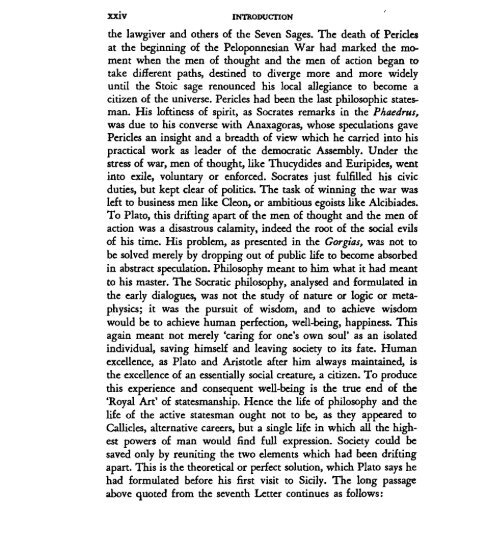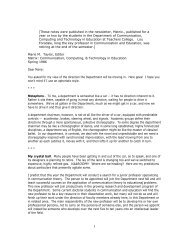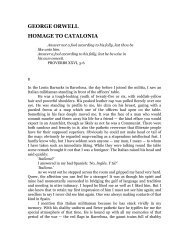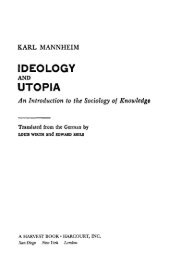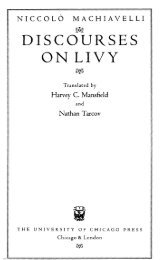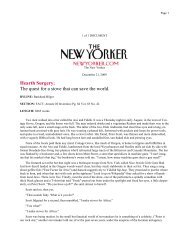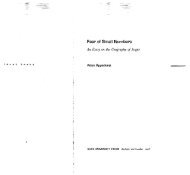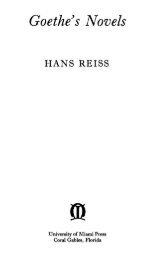THE REPUBLIC OF PLATO - Studyplace
THE REPUBLIC OF PLATO - Studyplace
THE REPUBLIC OF PLATO - Studyplace
Create successful ePaper yourself
Turn your PDF publications into a flip-book with our unique Google optimized e-Paper software.
xxiv<br />
INTRODUCTION<br />
the lawgiver and others of the Seven Sages. The death of Pericles<br />
at the beginning of the Peloponnesian War had marked the moment<br />
when the men of thought and the men of action began to<br />
take different paths, destined to diverge more and more widely<br />
until the Stoic sage renounced his local allegiance to become a<br />
citizen of the universe. Pericles had been the last philosophic statesman.<br />
His loftiness of spirit, as Socrates remarks in the Phaedrus,<br />
was due to his converse with Anaxagoras, whose speculations gave<br />
Pericles an insight and a breadth of view which he carried into his<br />
practical work as leader of the democratic Assembly. Under the<br />
stress of war, men of thought, like Thucydides and Euripides, went<br />
into exile, voluntary or enforced. Socrates just fulfilled his civic<br />
duties, but kept clear of politics. The task of winning the war was<br />
left to business men like Clean, or ambitious egoists like Alcibiades.<br />
To Plato, this drifting apart of the men of thought and the men of<br />
action was a disastrous calamity, indeed the root of the social evils<br />
of his time. His problem, as presented in the Gorgias, was not to<br />
be solved merely by dropping out of public life to become absorbed<br />
in abstract speculation. Philosophy meant to him what it had meant<br />
to his master. The Socratic philosophy, analysed and formulated in<br />
the early dialogues, was not the study of nature or logic or metaphysics;<br />
it was the pursuit of wisdom, and to achieve wisdom<br />
would be to achieve human perfection, wdl-being, happiness. lbis<br />
again meant not merely 'caring for one's own soul' as an isolated<br />
individual, saving himself and leaving society to its fate. Human<br />
excellence, as Plato and Aristotle after him always maintained, is<br />
the excellence of an essentially social creature, a citizen. To produce<br />
this experience and consequent well-being is the true end of the<br />
'Royal Art' of statesmanship. Hence the life of philosophy and the<br />
life of the active statesman ought not to be, as they appeared to<br />
Callicles, alternative careers, but a single life in which all the highest<br />
powers of man would find full expression. Society could be<br />
saved only by reuniting the two elements which had been drifting<br />
apart. This is the theoretical or perfect solution, which Plato says he<br />
had formulated before his first visit to Sicily. The long passage<br />
above quoted from the seventh Letter continues as follows:


